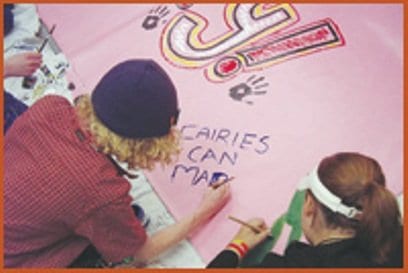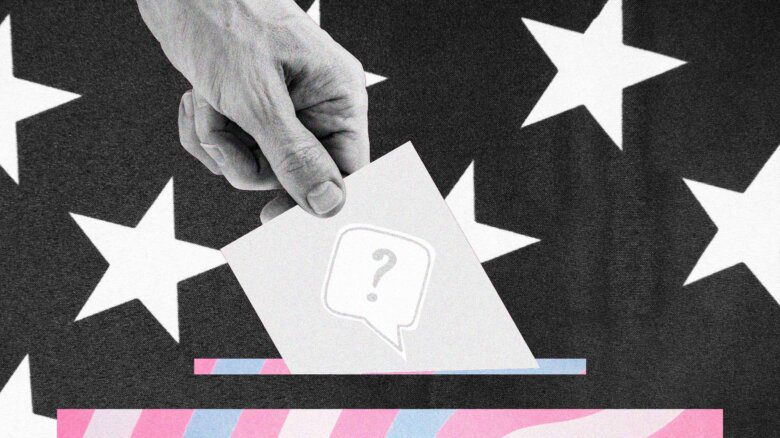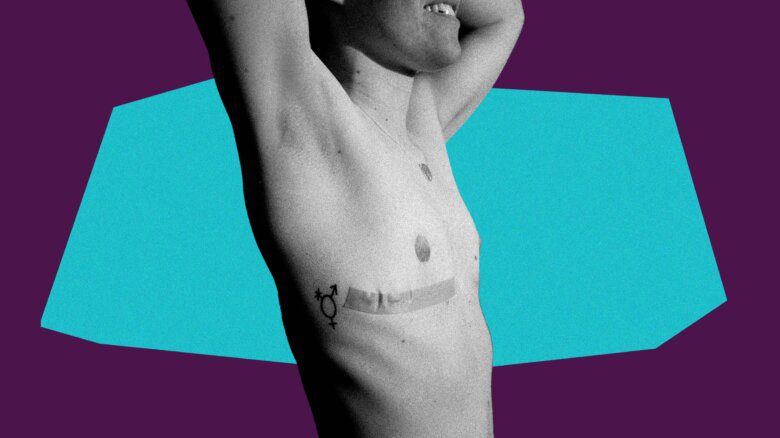If you passed Boho and Khotso Young on Bank St, you wouldn’t know that the stylish, hip twins have been through a tough period. The 16-year-old African-Canadians seem like average, perhaps a little boisterous, teenagers.
Looks can be deceiving.
“In high school there were a lot of negative things,” Boho says, momentarily losing her large and magnetic smile. “People would criticize me, people would look at me weird. Girls in the change room would shun me and make sure they changed away from me.”
Most of us know by personal experience how difficult it can be to grow up queer. Luckily for the Young girls, they discovered Pink Triangle Services.
The Pink Triangle Youth (PTY) group takes place Wednesday nights and offers a safe haven for youth to discuss any topic or issue that goes along with being young and queer. As the flagship program of PTS, youth have been meeting since the organization was conceived in 1984. Another queer youth group has been running in the west end for two years.
“In high school people just kept making comments,” Khotso adds. “Some people wouldn’t talk to me because Boho had come out. They said really rude homophobic remarks.”
Soon after Boho opened up her closet, Khotso realized she was similar to her twin sister in another way. “My parents thought I was just copying my sister,” Khotso said.
The Young twins are just two of the many teens who have turned to PTY for help.
“They get support from other queer youth,” says Jean-Yves Benard, 20, coordinator of PTY. “They get to learn how to become a productive queer person in the community, or that’s what we hope anyway. They learn how to better themselves. It’s just a lot of education on how to be a good person in the world.”
PTY is open to anyone between the ages of 12 and 25. The age limit was previously 14, but PTY coordinators realized queer youth were coming out earlier.
Although very social and full of fun, the main focus of PTY is education.
“That’s the mandate, so that’s what we do first and foremost,” says Darryl Lim, the PTS coordinator of volunteers and programs assistant.
“Political advocacy is something we don’t do. So PTS becomes a support group as well as a discussion group and an educational tool.”
A typical free-flowing session of PTY will include discussions on HIV/AIDS prevention, healthy relationships, sexual health, attitude and homophobia. “And because it’s youth, we have to keep it fun,” says Lim. “So there is a good social component added to it.”
While youth who seek out PTY’s services may be facing hassles at home or school or church, it’s apparent that fun can be had in the face of so much turmoil.
“It’s loads of fun,” says 16-year-old Karen Hayes. “Everybody’s really, really nice. I started volunteering in the PTS library and now I’m coming to the group because it’s just a really great place to be for anybody. They have that whole abbreviation G-B-L-T.”
Straights are also welcome.
“There are straight people — allies we call them — who come with friends; a lot of them do stay,” Lim says. About 10 percent of participants don’t identify as queer.
One such ally is 19-year-old Caleb Johnson. He comes to support queer friends and enjoys the comfortable atmosphere.
“About 85 percent of my friends are gay,” Johnson explains. “I’ve been to straight bars, where it’s all, ‘I’m a man,’ slam my beer on the table. And here it’s a more comfortable atmosphere. It would be easier for me to get dates if I was gay. So many guys come after me, and I don’t know why.”
Parents who want to observe are also welcome to, as long as they don’t interfere with the group.
“We do have parents who occasionally come, either queer parents or not-queer parents, and just sit outside the group,” says Lim. “We don’t want parents in the group, so that the child feels more comfortable talking about stuff.”
Created at the suggestion of queer youth, a west end group — the Western Rainbow Drop-In — has been running for two years in partnership with the Western Ottawa Community Centre.
“It’s worked out really well,” says Brenda Allard, a youth management worker. “We’ve had up to 30 kids a night.”
“At the west end group, since it’s such a smaller group it’s more personal. You go there and you just feel like you’re at home,” says bisexual 16-year-old Shannon Riley. “I’ve been going there since it started; I’ve never missed it unless I was dying.”
Allard acts as host at the west end group, along with Christine Castonguay, a youth and family counsellor. Castonguay has worked with countless youths in her career, and says queer kids are the most rewarding.
“Often people focus on the negative and forget about the success,” she says. “There are always exceptions, but I find queer youth are very respectful and honest and they want to give back.”
There is no way to gauge exactly how many teens have had their lives transformed from their involvement in the groups. But the plucky Young girls can’t say enough good things about PTS.
“PTS has been the best,” Khotso says. “Meeting people and having their support with anything that happens. I’m so grateful for their help. It’s good to know what’s out there in your community and to build a community for each other for the future.”


 Why you can trust Xtra
Why you can trust Xtra


